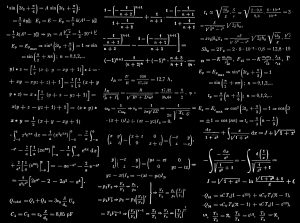Abacus for Kids: Unlocking Mathematical Genius

Introduction
Mathematics can be a challenging subject for many children. Yet, introducing them to abacus can turn this challenge into an exciting adventure. But what is abacus, and how can it help your child excel in maths? This article explores the remarkable benefits of abacus mathematics and how it can unlock the mathematical genius in your child.
What is Abacus?
The abacus, a simple yet powerful tool, has been used for centuries across various cultures to perform arithmetic calculations. It consists of a frame with rods, each containing beads that can be moved back and forth. By manipulating these beads, children can perform basic arithmetic operations like addition, subtraction, multiplication, and division. The abacus not only helps in performing calculations but also enhances mental arithmetic skills.
The Benefits of Abacus Maths for Kids
Enhances Cognitive Skills
Engaging with the abacus requires children to use both their hands and their minds, creating a multi-sensory learning experience. This enhances cognitive skills such as:
-
Memory: Children remember the position of beads and the steps involved in calculations.
-
Concentration: Focusing on moving beads correctly helps improve attention span.
-
Problem-solving: Breaking down complex calculations into simpler steps boosts analytical thinking.
Develops Mathematical Understanding
Abacus mathematics goes beyond rote memorisation of numbers. It helps children understand mathematical concepts at a deeper level. By visualising numbers as beads, children can grasp abstract ideas more concretely. This foundational understanding can make learning advanced maths easier in later years.
Improves Speed and Accuracy
Practising abacus regularly can significantly improve a child’s speed and accuracy in calculations. Children learn to perform calculations quickly by visualising the abacus in their minds, a skill known as mental arithmetic. This not only boosts their confidence in maths but also enhances their performance in exams.
Boosts Self-Confidence
Success in abacus can give children a sense of achievement, boosting their self-confidence. As they master more complex calculations, they gain confidence in their mathematical abilities, which can translate into better performance in other subjects as well.
How to Introduce Abacus to Your Child
Start Early
Introducing the abacus at an early age can have long-lasting benefits. Children as young as six can start learning the basics of abacus. At this age, their brains are highly receptive to new information, making it the perfect time to introduce this tool.
Make Learning Fun
Learning abacus doesn’t have to be a chore. Turn it into a fun activity by incorporating games and challenges. Rewarding progress with small incentives can keep your child motivated and engaged.
Practice Regularly
Consistency is key when it comes to mastering the abacus. Encourage your child to practice regularly, even if it’s just for a few minutes each day. Regular practice helps reinforce learning and improves proficiency over time.
The Science Behind Abacus Learning
Studies have shown that abacus training can have a profound impact on brain development. Research indicates that children who practice abacus have higher levels of activity in the right hemisphere of the brain, which is responsible for creativity and visual-spatial skills. This balanced brain development can lead to improved performance in both academic and non-academic areas.
Improved Neural Connectivity
Using the abacus stimulates neural pathways, enhancing connectivity between different regions of the brain. This can improve overall cognitive function and make learning other subjects easier and more intuitive.
Enhanced Visualisation Skills
Abacus learners develop strong visualisation skills, as they often imagine the abacus in their minds to perform calculations. This mental imagery can enhance spatial reasoning, which is crucial for subjects like geometry and physics.
Real-Life Applications of Abacus Skills
The skills gained from abacus are not limited to the classroom. They have real-life applications that can benefit your child in various ways:
-
Budgeting and Finance: Quick mental calculations can help with budgeting and financial planning.
-
Problem-Solving: Analytical skills developed through abacus training can aid in solving everyday problems.
-
Career Prospects: Strong mathematical skills can open doors to careers in engineering, computer science, finance, and more.
Abacus Maths vs. Traditional Methods
|
Traditional Maths |
Abacus Maths |
|
Abstract concepts |
Visual and tactile learning |
|
Memorisation-heavy |
Logical reasoning and understanding |
|
Limited engagement |
Interactive and fun |
|
Slow progress |
Rapid mental calculation skills |
Choosing the Right Abacus Program
When selecting an abacus program for your child, it’s essential to consider several key factors to ensure the best learning experience and outcomes.
Reputation: Look for programs with a proven track record and positive reviews. Seek recommendations from other parents, check online testimonials, and research the program’s history and success rates. A well-regarded program with a solid reputation is likely to provide high-quality instruction and effective learning techniques.
Curriculum: Ensure the curriculum is age-appropriate and aligns with your child’s learning needs. The program should offer a structured and progressive curriculum that starts with the basics of abacus and gradually advances to more complex concepts. It’s important that the curriculum is designed to engage children of different age groups and learning paces, offering a balance of challenge and support.
Qualified Instructors: Check that the instructors are well-trained and experienced in teaching abacus. Qualified instructors should have a strong background in both mathematics and child education, with specific training in abacus teaching methods. Their ability to communicate concepts clearly and inspire enthusiasm for learning in young students is crucial for a successful abacus program.
By carefully evaluating these factors, you can select an abacus program that will provide your child with a comprehensive and enjoyable learning experience, setting them up for success in mathematics and beyond.
Conclusion
Incorporating the abacus into your child’s learning routine can unlock a world of benefits, from enhanced cognitive skills to a deeper understanding of mathematics. By introducing your child to the abacus, you are not only helping them excel academically but also equipping them with valuable skills that will benefit them throughout their lives. The abacus fosters critical thinking, improves problem-solving abilities, and encourages a love for learning that transcends the classroom.
As they master abacus techniques, your child will experience increased confidence in their mathematical abilities and greater overall academic success. Additionally, the skills developed through abacus training, such as improved concentration and enhanced memory, are transferable to other areas of their education and everyday life.
Give your child the head start they deserve in mathematics. Curious about what SIP Abacus has to offer? Learn More About Our Courses and discover the perfect program for your child!



